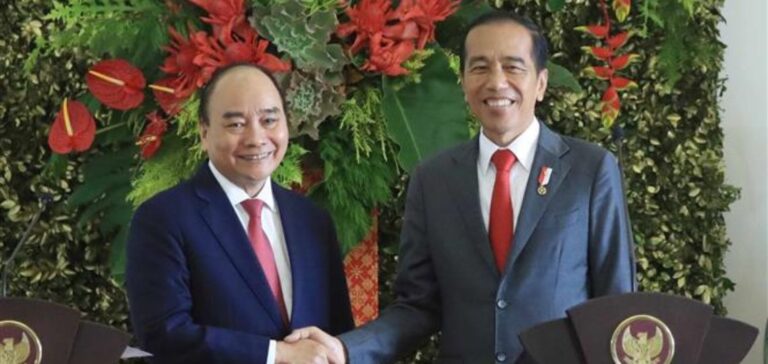Located in the South China Sea between Indonesia and Vietnam, it is expected to reach a peak production of 115 million standard cubic feet per day (MMSCFD) in 2027 according to SKK Migas spokesman Mohammad Kemal.
A local unit of Harbour Energy operates the natural gas in the Tuna field. The British company is accelerating its development abroad through various projects. Tuna should then be exported to Vietnam from 2026. Discovered in April 2014, the Tuna oil field has about 100 million barrels of oil equivalent.
SKK Migas chairman Dwi Soetjipto said Monday that apart from the economic benefits, the development of the project would highlight Indonesia’s maritime rights.
“There will be activities in the border area which is one of the geopolitical hot spots in the world. The Indonesian Navy will also participate in securing the upstream oil and gas project so that economically and politically it becomes an assertion of Indonesia’s sovereignty.”
Tensions over sovereignty in the South Sea
China claims sovereignty over most of the South China Sea, citing its own historical maps. However, an international arbitration tribunal says in 2016 that there was no legal basis. In addition, in 2021, China is asking Indonesia to stop drilling for oil and natural gas in the maritime territory that both countries consider theirs.
In the South China Sea, China is making an increasingly strong claim to the 9-dash line. This is the maritime space that China claims in the name of historical right. A massive claim, as this corresponds to more than ⅔ of the South China Sea. Moreover, it encroaches on the economic zones of Vietnam, Malaysia and the Philippines.
Second, in recent decades, energy activities in the South China Sea have been subject to a slowdown. The Chinese coast guard or maritime surveillance vessels have disrupted the work of Vietnam, Malaysia and the Philippines in their exclusive economic zones.
In addition, diplomatic relations between Jakarta and Beijing have soured over the claim. China claims the right for its vessels to fish in the Northern Natuna Sea. These waters, located north of the small archipelago of Natuna, yet assigned in 2016 to Indonesia, as an exclusive economic zone (EEZ), by an international court.
Indeed, the Philippines decided to refer the matter to the Court of Arbitration in The Hague. The Court rendered a judgment in 2016 not favorable to China. It also states after studies that China’s historical rights were unfounded. Nevertheless, China turns its back on multilateral institutions when it explicitly rejects the decision.





















